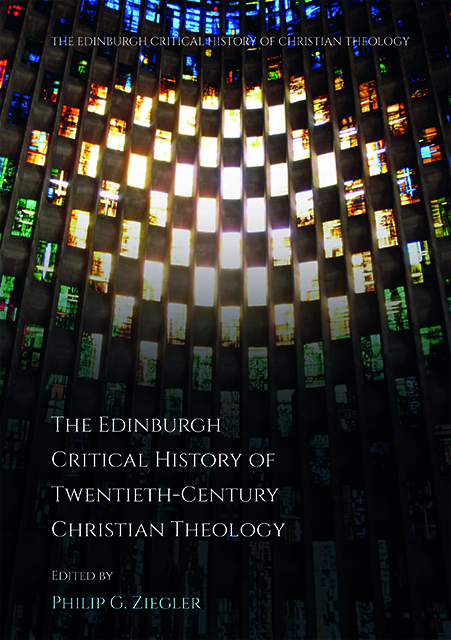Book contents
- Frontmatter
- List of Contents
- Notes on Contributors
- Editor's Introduction
- 1 Modern Theology in a Scientific, Historical Age
- 2 Tradition and Innovation
- 3 Scripture and Criticism
- 4 Reason, Method, System
- 5 Catholicism and Ecumenism
- 6 Fundamentalism and Evangelicalism
- 7 Synagogue, Sho’ah and State
- 8 Religion(s)
- 9 God
- 10 Spirit
- 11 Christ
- 12 Liberation and Freedom
- 13 The Secular – The Political: Augustine and Political Augustinianism in Twentieth-Century Political Theology
- 14 Globalisation after Empires: World Christianity and the Theological De-centring of Europe
- 15 War and Peace
- 16 Race and Black Theology
- 17 Sex and Gender
- 18 Hope
- Index
3 - Scripture and Criticism
Published online by Cambridge University Press: 14 July 2023
- Frontmatter
- List of Contents
- Notes on Contributors
- Editor's Introduction
- 1 Modern Theology in a Scientific, Historical Age
- 2 Tradition and Innovation
- 3 Scripture and Criticism
- 4 Reason, Method, System
- 5 Catholicism and Ecumenism
- 6 Fundamentalism and Evangelicalism
- 7 Synagogue, Sho’ah and State
- 8 Religion(s)
- 9 God
- 10 Spirit
- 11 Christ
- 12 Liberation and Freedom
- 13 The Secular – The Political: Augustine and Political Augustinianism in Twentieth-Century Political Theology
- 14 Globalisation after Empires: World Christianity and the Theological De-centring of Europe
- 15 War and Peace
- 16 Race and Black Theology
- 17 Sex and Gender
- 18 Hope
- Index
Summary
Introduction
In what follows I explore the nature and future direction both of biblical criticism and interpretation of Scripture. Two things need to be said by way of introduction. First, to attribute the status of ‘Scripture’ to the bundle of ancient texts otherwise termed ‘the Bible’ is to profess that this is a single text in which God is enduringly involved, and which accordingly is to be recognised as authoritative by the community which has determined to follow Jesus, the Church. To refer to the biblical texts as Scripture is to indicate that these seemingly random texts have a superintended purpose. Biblical scholars, as biblical critics, need not be professionally aligned with such a commitment, either because such a commitment is seen to frustrate the ends of biblical criticism or because such commitments are regarded to be outside the realm of what it is proper to biblical criticism. Second, all the terms we are unpacking – biblical criticism, historical criticism, ideological criticism, theological interpretation of Scripture – are each in their own way shorthand, referring to a family of approaches and specialisations. Within their family groupings, practitioners have a range of different motivations, and each of the groupings has their own sub-sub-disciplines. To give an example, historical criticism is a hugely diverse industry that no scholar could possibly master in a single professional career (most Pauline scholars find enough to do in their own terrain without presuming they can move into historical Jesus studies), but historical criticism is itself just one type of biblical criticism (literary criticism is another type). Any assessment of biblical criticism or theological interpretation must be alert to this sometimes wild diversity. As true as it is to say that the territories explored in this essay are made up of many parts, so it is also necessary to insist that the territories do not possess impermeable boundaries. Although some occupants of the different territories are keen to erect defined boundaries beyond which they have not wished to proceed, we will argue that when it comes to understanding the Bible as Scripture we need porous, not watertight, boundaries between different approaches and disciplines. A theological approach to Scripture should be polyphonic.
This essay has five parts. First, I outline some of the ways in which we can understand ‘biblical criticism’. Second, I investigate ideological criticism and suggest its significance for those who approach the Bible as Scripture.
- Type
- Chapter
- Information
- Publisher: Edinburgh University PressPrint publication year: 2022



